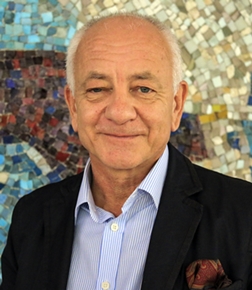
Chief of UNESCO’s Youth and Sports Section
Lessons learnt from piloting UNESCO’s Quality Physical Policy Guidelines in Fiji, Mexico, South Africa, and Zambia
17 November, 14h00–14h30
The Quality Physical Education Guidelines for policy makers had been developed in a joint effort by UNESCO and 6 international partners – European Commission, ICSSPE, IOC, Nike, UNDP, WHO – and were launched in 2016. They included a policy revision methodology outlining the key steps to take in a policy revision process and an interactive training module for national policy revision teams.
With backstopping from UNESCO’s international Secretariat and its field offices, the Guidelines were rolled-out in four pilot countries: Fiji, Mexico, South Africa and Zambia. The objective was to test the methodology of a multi-stakeholder approach and analyze the gaps that exist in aligning various authorities – education, health, youth and sport – together with the National Olympic Committees, in designing coherent and consistent policies, and concrete measures to improve sustainable sport provisions in schools.
The independent project evaluators – the Institute of Sport and Development (South Africa) – recommended that the project be promoted as a case-study for use by other UN agencies and multi-lateral donors working on policy development. There were several success factors:
- tailored country implementation which resulted in a diverse range of policy instruments which will support additional country pick-up in all world regions.
- the inclusive and participatory policy design process which engaged diverse stakeholders from education, youth, sport and health sectors, anchoring national ownership and strengthening intersectoral interfaces.
- concrete provisions on the value of community partnerships, creative communications and results-based monitoring and evaluation mechanisms integrated in each policy instrument
- The consistent involvement of National Olympic Committees together with Young Olympic Ambassadors
Bio:
Alexander Schischlik is currently Chief of UNESCO’s Youth and Sports Section. Alexander joined UNESCO in 1993, where he has been overseeing international programs in a number of fields, including music and the arts, cultural industries and human rights. He has been working on the sports portfolio since 2012 and the youth portfolio since 2014. Born in Austria, Alexander holds a Master degree in Economics and a Doctorate in Law from the University of Vienna. He started his career in the insurance business, based in Buenos Aires, and then moved on to manage international projects in music production and artists promotion working in Vienna and Brussels.